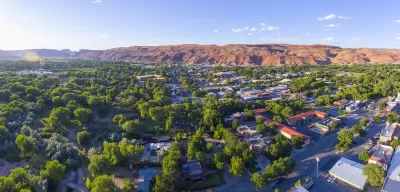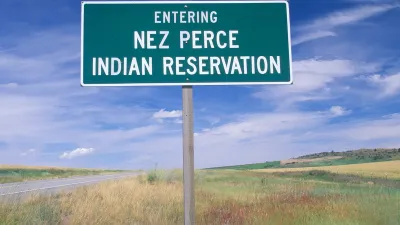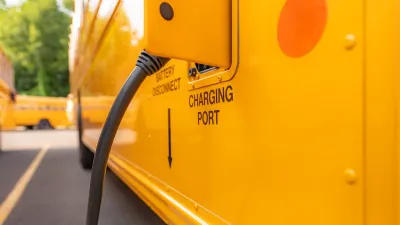Moab adopted a Sustainability Action Plan to map out goals and strategies for the pursuit of sustainability, including the reduction of greenhouse gas emissions. The plan was approved by the Moab City Council on December 12, 2023.

Located in eastern Utah, Moab is probably best known as the gateway to the massive red rock formations in Arches National Park. However, as reported in this article by Alison Harford, Moab should also be recognized for its efforts to advance sustainability, as exemplified by the recent adoption of its Sustainability Action Plan. This plan represents the culmination of an eight-month planning effort and reflects the community’s interests and needs for clean air, clean water, and a livable environment. The planning process included public outreach activities to inform the development of the priorities, a survey to collect public input, an open house, and numerous technical advisory committee meetings.
The plan lays out ambitious goals, such as achieving an 80 percent reduction in greenhouse gas emissions by 2040 and achieving a 100 percent renewable electricity supply community-wide by 2030. The city also wants to gain certification to the International Dark Skies Association in 2024, and plans to create a “Transportation Electrification Plan” to identify “policies and strategies to prepare for projected electric vehicle adoption and charging demand.”
Moab has made steady progress in its sustainability efforts. In 2004, the city became the nation’s first EPA Green Power Community by exceeding a minimum threshold of voluntary green power purchases. By 2009, the city the 2020 Vision: A Sustainable Moab Plan which includes goals for water conservation, water reuse, energy efficiency, sustainable construction, retrofitting for sustainability, and community awareness. Since then, Moab has continued to pursue sustainability in its initiatives and goals. In 2017, Moab committed to 100% renewable electricity by 2032 and an 80% reduction in greenhouse gases by 2040. In 2019, the city moved the date to 2030 to source 100% renewable electricity and become an anchor community for the Utah 100 Communities program enabled by House Bill 411.
FULL STORY: City adopts Sustainability Action Plan

Study: Maui’s Plan to Convert Vacation Rentals to Long-Term Housing Could Cause Nearly $1 Billion Economic Loss
The plan would reduce visitor accommodation by 25,% resulting in 1,900 jobs lost.

North Texas Transit Leaders Tout Benefits of TOD for Growing Region
At a summit focused on transit-oriented development, policymakers discussed how North Texas’ expanded light rail system can serve as a tool for economic growth.

Why Should We Subsidize Public Transportation?
Many public transit agencies face financial stress due to rising costs, declining fare revenue, and declining subsidies. Transit advocates must provide a strong business case for increasing public transit funding.

How to Make US Trains Faster
Changes to boarding platforms and a switch to electric trains could improve U.S. passenger rail service without the added cost of high-speed rail.

Columbia’s Revitalized ‘Loop’ Is a Hub for Local Entrepreneurs
A focus on small businesses is helping a commercial corridor in Columbia, Missouri thrive.

Invasive Insect Threatens Minnesota’s Ash Forests
The Emerald Ash Borer is a rapidly spreading invasive pest threatening Minnesota’s ash trees, and homeowners are encouraged to plant diverse replacement species, avoid moving ash firewood, and monitor for signs of infestation.
Urban Design for Planners 1: Software Tools
This six-course series explores essential urban design concepts using open source software and equips planners with the tools they need to participate fully in the urban design process.
Planning for Universal Design
Learn the tools for implementing Universal Design in planning regulations.
City of Santa Clarita
Ascent Environmental
Institute for Housing and Urban Development Studies (IHS)
City of Grandview
Harvard GSD Executive Education
Toledo-Lucas County Plan Commissions
Salt Lake City
NYU Wagner Graduate School of Public Service





























